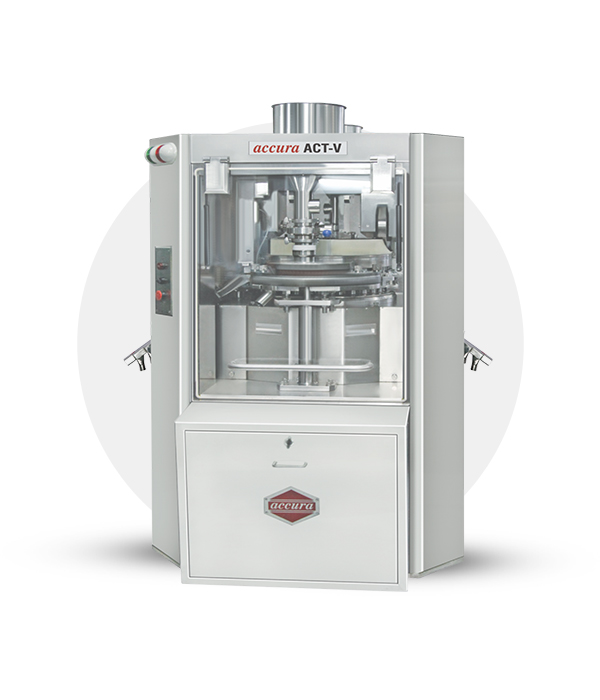The Evolution of Tablet Press Machines: From Manual to Fully Computerized Systems
Introduction
The pharmaceutical industry has witnessed remarkable advancements over the years, and one of the most significant has been the evolution of tablet press machines. From the early days of manual presses to today's fully computerized systems, these machines have undergone a transformative journey. This evolution has not only enhanced the efficiency and precision of tablet production but has also played a crucial role in meeting the increasing demands of the pharmaceutical market.
Early Tablet Press Machines
In the early days, tablet press machines were manually operated. These machines relied heavily on human labor and were limited in their output. The manual presses were simple in design, typically featuring a hand-cranked mechanism to compress powder into tablets. While they served the purpose of small-scale production, these machines had several limitations.
Manual tablet presses were prone to inconsistencies in tablet size, weight, and hardness. The lack of precision and control often resulted in tablets that did not meet the required quality standards. Additionally, the production speed was slow, making it difficult to meet the demands of larger markets. These challenges highlighted the need for more advanced and efficient tablet press machines.
Introduction of Semi-Automatic Tablet Press Machines

The introduction of semi-automatic tablet press machines marked a significant step forward in the evolution of tablet manufacturing. These machines combined manual operation with automated features, offering improved precision and higher production rates. Semi-automatic presses utilized motorized mechanisms to control certain aspects of the tablet compression process, reducing the reliance on human labor.
One of the key advantages of semi-automatic tablet presses was their ability to produce tablets with more consistent quality. The motorized components allowed for greater control over tablet weight, thickness, and hardness, resulting in a more uniform product. Additionally, these machines could operate at higher speeds than their manual counterparts, making them suitable for medium-scale production.
However, while semi-automatic machines were a significant improvement, they still required a considerable amount of manual intervention. The need for further automation was evident, leading to the development of fully computerized tablet press machines.
The Rise of Fully Computerized Tablet Press Machines
The advent of fully computerized tablet press machines revolutionized the pharmaceutical manufacturing process. These machines are equipped with advanced technology that allows for complete automation of the tablet compression process. Key innovations such as automatic weight control, force feeders, and real-time monitoring have drastically improved the efficiency and precision of tablet production.
Fully computerized systems, like the ACT Series Tablet Press from Fluidpack, offer unparalleled control over every aspect of tablet manufacturing. These machines feature sophisticated software that allows operators to program and monitor the entire production process through an intuitive interface. Parameters such as tablet weight, thickness, and compression force can be precisely controlled and adjusted in real-time, ensuring consistent quality across large batches.
Moreover, these machines are designed to comply with cGMP (Current Good Manufacturing Practice) standards, ensuring that the production process meets the highest quality and safety requirements. The ability to integrate automated weight control and tablet rejection systems further enhances the reliability of fully computerized presses, minimizing the risk of defects and wastage.
Impact on the Pharmaceutical Industry
The transition from manual to fully computerized tablet press machines has had a profound impact on the pharmaceutical industry. The enhanced precision, speed, and efficiency of these machines have enabled manufacturers to meet the growing demands of global markets. Large-scale production has become more feasible, and the consistency of tablet quality has improved significantly.
Fully computerized tablet presses have also reduced the need for manual labor, leading to cost savings and increased production capacity. The ability to produce high volumes of tablets with minimal human intervention has allowed pharmaceutical companies to scale their operations and improve their competitiveness in the market.
Future Trends
As technology continues to advance, the future of tablet press machines looks promising. The integration of artificial intelligence (AI) and machine learning (ML) into tablet manufacturing processes is expected to further enhance automation and efficiency. AI-driven systems could optimize production parameters in real-time, improving tablet quality and reducing waste.
Additionally, advancements in sensor technology and data analytics are likely to lead to more sophisticated monitoring and control systems. These innovations will enable manufacturers to achieve even higher levels of precision and consistency in tablet production.
FAQs
Manual machines rely on human labor for operation and are prone to inconsistencies, while computerized machines offer automated control, ensuring consistent tablet quality and higher production speeds.
Fully computerized systems enhance precision, reduce human error, and allow for real-time monitoring and adjustments, resulting in consistent tablet quality and increased production efficiency.
cGMP compliance ensures that the manufacturing process meets stringent quality and safety standards, which is crucial in pharmaceutical production to ensure the safety and efficacy of the products.
Modern machines use advanced features like automatic weight control, force feeders, and real-time monitoring to maintain consistency in tablet size, weight, and hardness.
Future advancements may include AI-driven optimization, enhanced sensor technology, and more sophisticated data analytics, leading to further automation and improved production efficiency.
Conclusion
The evolution of tablet press machines from manual to fully computerized systems represents a significant milestone in pharmaceutical manufacturing. The journey from labor-intensive, inconsistent manual presses to highly efficient, precise computerized machines has transformed the industry, enabling large-scale production and consistent product quality. As technology continues to evolve, the future of tablet manufacturing promises even greater advancements, ensuring that the industry can meet the challenges of an ever-changing market.
OFFICE ADDRESS
I – 4116, Phase IV, Near Neeka Tube Cross Road,
G.I.D.C Vatva, Ahmedabad – 382 445,
Gujarat, India
Copyright © 2025 Fluid Pack - Blogs - Superior Quality Tablet Press, Roll Compactor Machines, Punches & Dies.
All Rights Reserved. - Web Design & SEO by Opal Infotech




